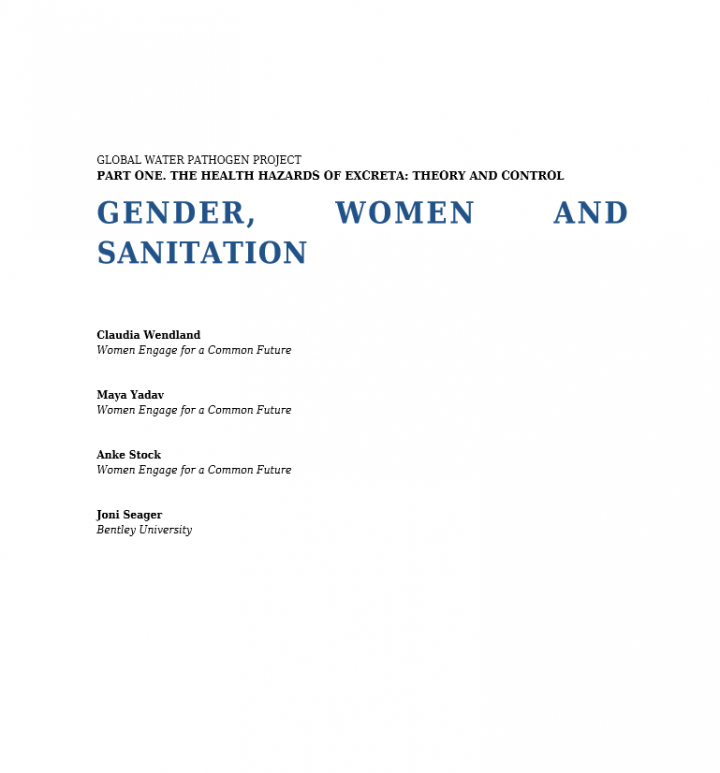
Published in: 2017
Pages: 6
Author:
Wendland, C., Yadav M., Stock, A. and Seager, J.
Uploaded by:
SuSanA Admin
Partner profile:
common upload
2430 Views
39 Downloads
Women and girls are especially affected by inadequate sanitation because of gender related differences - cultural and social factors - but also because of sex-related differences - physiological factors. Gender refers to the social differences and relations between men and women which are learned and often constructed and which differ in various societies and can change over time.
There are tremendous socio-economic benefits associated with improved sanitation services including efficiency (that is reduced time due to health and care-giving burdens), safety, improved health, transparency and good governance and empowerment. Gender mainstreaming can empower women to make strategic choices in terms of rights to assets and services, leading to better education and a healthier and productive population and improved social capital.
Bibliographic information
Wendland, C., Yadav M., Stock, A. and Seager, J. (2017). Gender, Women and Sanitation.
Filter tags
English Gender equality Highlight on Gender Theme Page Sustainable WASH in institutions and gender equality (WG7)














